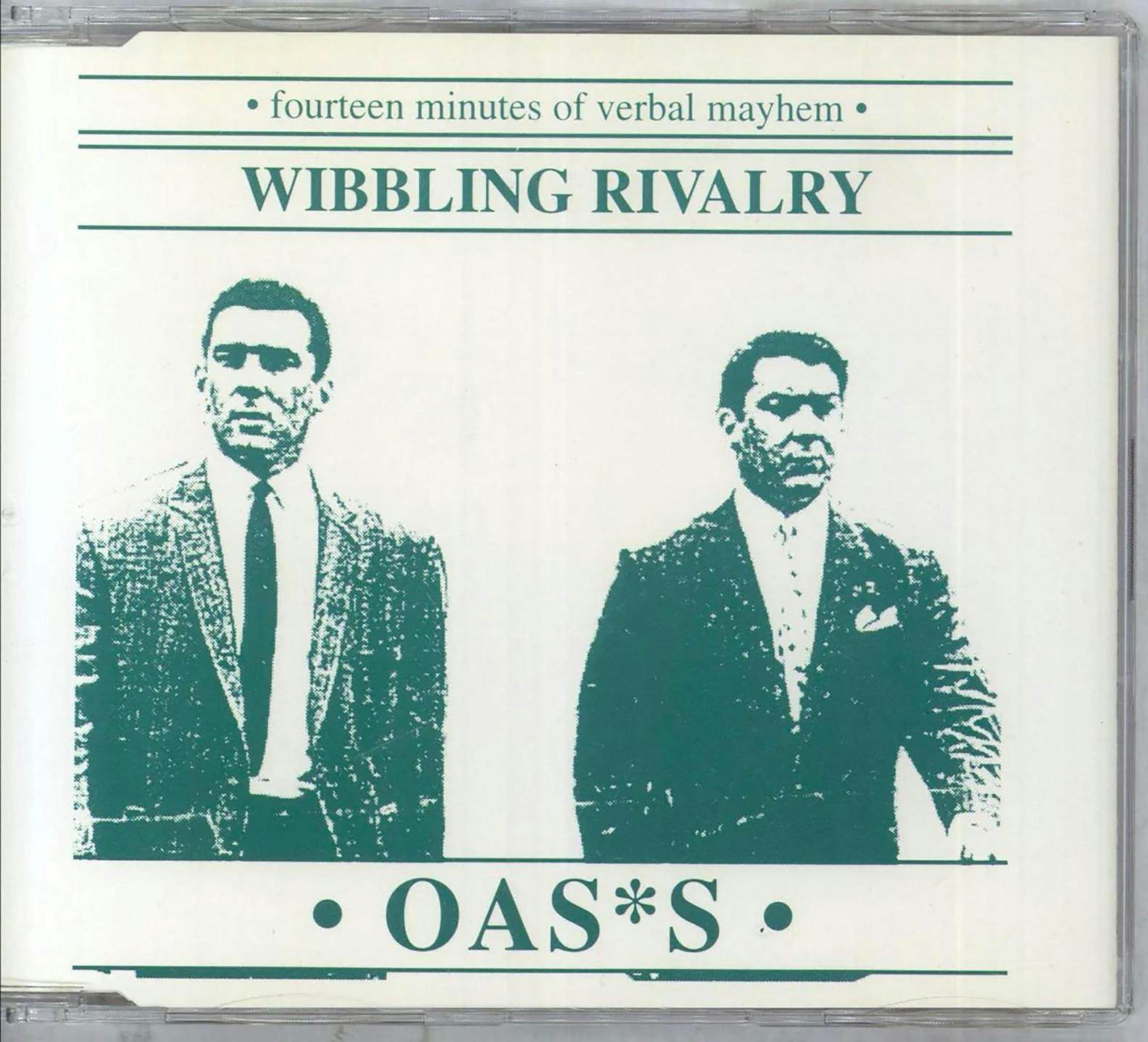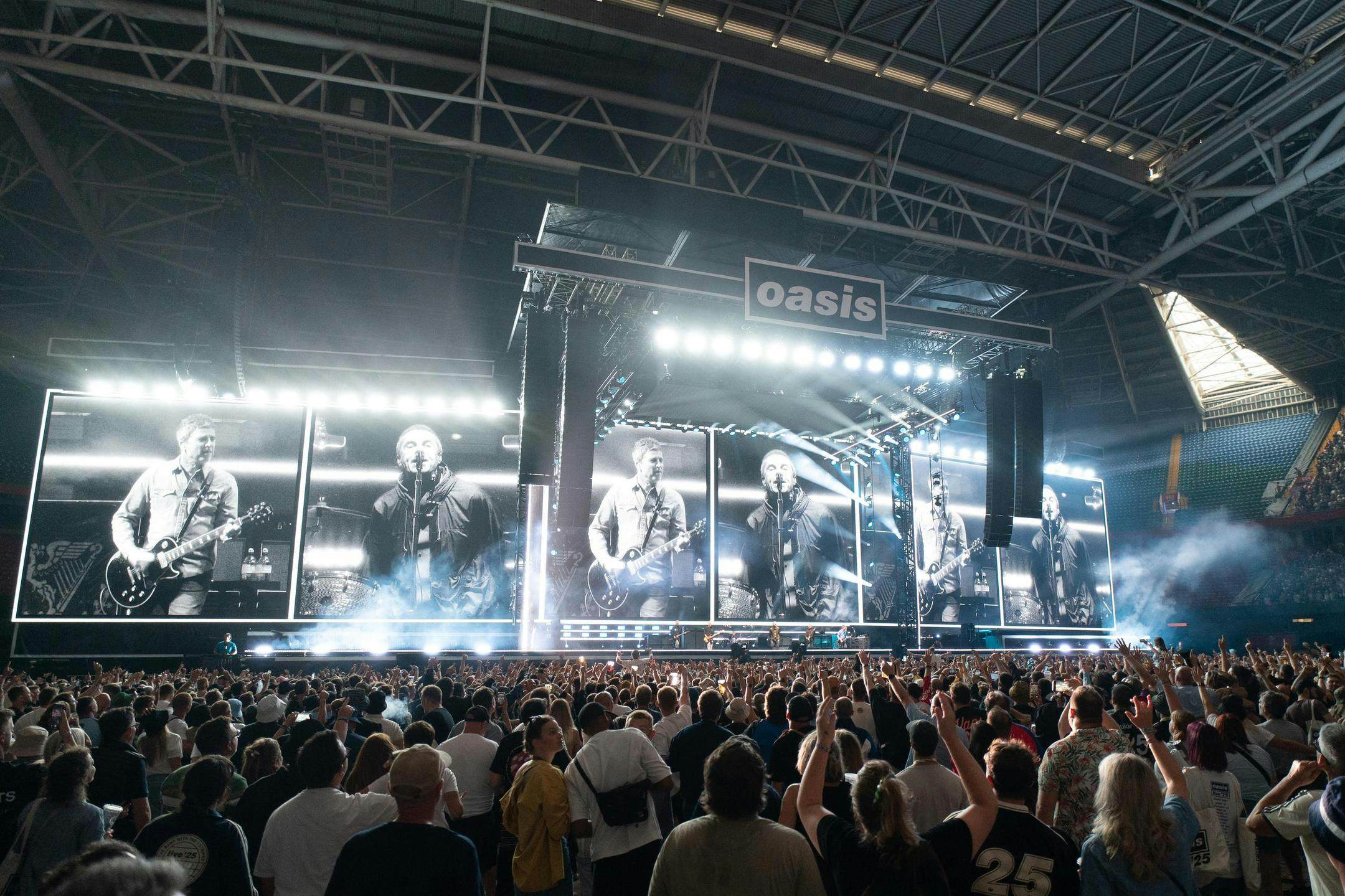This article is taken from the August-September 2025 issue of The Critic. To get the full magazine why not subscribe? Right now we’re offering five issues for just £25.
In November 1995, I dragged my Oasis-loving friend to a record shop and instructed her to buy a 7” called “Wibbling Rivalry”. Why didn’t I buy it myself? Because we were 13, and dividing our music purchases was a way of eking our pocket money out. My job in the relationship was to cover the Blur discography, the better to inform our arguments about which band was better/fitter.

But “Wibbling Rivalry” wasn’t a new Oasis song — my friend already had their current single, the sweet chamber pop song “Wonderwall”. It was a 14-minute recording of Noel and Liam Gallagher having an argument during an interview from the previous year. We went back to my friend’s house, stuck it on the turntable and marvelled at the spiralling invective.
“I fuckin’ hate him,” says Liam as the bickering boils over. “And I hope one day there’s a release where I can smash fuck out of him, with a fuckin’ Rickenbacker, right on his nose, and then he does the same to me, ’cause I think that we’re stepping right up to it now. There’s a fuckin’ line there and we’re right on the edge of it.” (Noel, ever the laconic one, mostly says “bullshit” and tells his younger brother to “fuck off”.)
It says a lot about how fixated the UK was on the Gallagher soap opera that “Wibbling Rivalry” made it to number 52. The Gallaghers, with their bust-ups and brawling, were a gift to the tabloids, which until recently had relied on boybands to supply stories of rock ’n’ roll behaviour.
But boybands who acted out eventually got dropped and stopped being newsworthy. Oasis were an endlessly renewable gossip resource.
Surprisingly, though, “Wibbling Rivalry” also says a lot about what makes Oasis a great band. Liam and the rest of the band, barring Noel, had recently got into a fight on a ferry to Amsterdam.
Everyone involved in the fracas was arrested and deported before they could step on stage — leaving Noel “with me dick out like a fuckin’ spare prick at a fuckin’ wedding”, as he says on the recording.
The argument is about whether this behaviour is “rock ’n’ roll” (Liam’s position) or “football hooliganism” (Noel’s position). For Liam, getting into “situations” is what makes bands great — proof that Oasis are up there with the Sex Pistols and the Rolling Stones. For Noel, the point is the music. The Pistols aren’t great, he tells Liam angrily: “They made one album.”
At the time of the fight, Oasis were three years old, and widely acknowledged to be the most exciting band in the UK (and, since the UK was having a paroxysm of national pride, therefore the world). Part of what made them so thrilling was this simmering hostility between the brothers, which came out as a high-wire tension in the music.
On the one hand, Liam’s working-class riot, exemplified by the lyrics of “Rock ’n’ Roll Star”: “You can wait for a lifetime/ For your chance in the sunshine [dragged out to three sarcastic syllables]/ You might as well do the white line.” “Rock ’n’ Roll Star” is a hymn to pleasure-seeking in a world that’s got nothing lasting to offer.
On the other, Noel’s more head-screwed-on approach — not that he was averse to the white lines, but for him, success meant endurance, not a glorious flame-out. The signature Noel-vibe song from their first album Definitely Maybe is probably “Live Forever”, a riposte to Nirvana’s heroin-inflected “I Hate Myself and I Want to Die”. “I can’t have people like that coming over here, on smack, fucking saying that,” he tutted in a later interview.

For most critics, the trajectory of Oasis after Definitely Maybe is one of diminishing returns: the albums get more bloated, the productions glossier. It’s a harsh judgement, because Noel’s songwriting undoubtedly grew as the band wore on (even a hipster like me has to admit that “Stop Crying Your Heart Out” is a banger), but not exactly unfair. The push-pull between hedonism and legacy gave that first album a drive that could only exist in that moment, between those people.
My first reaction to this summer’s Oasis reunion shows was cynical — to my mind, this was a commercial decision from a creatively exhausted band, rinsing the nostalgia market before it’s too late. Get me riled up enough, and I could even denounce the whole enterprise as a betrayal of the very values that had once made Oasis so vital, I was willing to spend (my friend’s) money to hear the two core members call each other bastards.
The “mad for it” chaos is only half the Oasis story, though. The other half belongs to Noel, who even at his highly-powdered peak of vainglory, always had one eye on the future: a future where Oasis were not just the biggest indie band in Britain, but one of the biggest stadium bands in the world. No less hungry than his brother, but cannier with it.
For now, the Gallagher brothers aren’t fighting, and all signs suggest that they’ve grown up enough to get through this run of concerts without coming to blows. The Noel ethos has won, because he was obviously right all along — it is, in fact, better to play your gigs than get deported. But Liam’s spark of dumb belligerence was the electricity that shook Oasis to life. Noel’s smartest move of all was knowing that.












